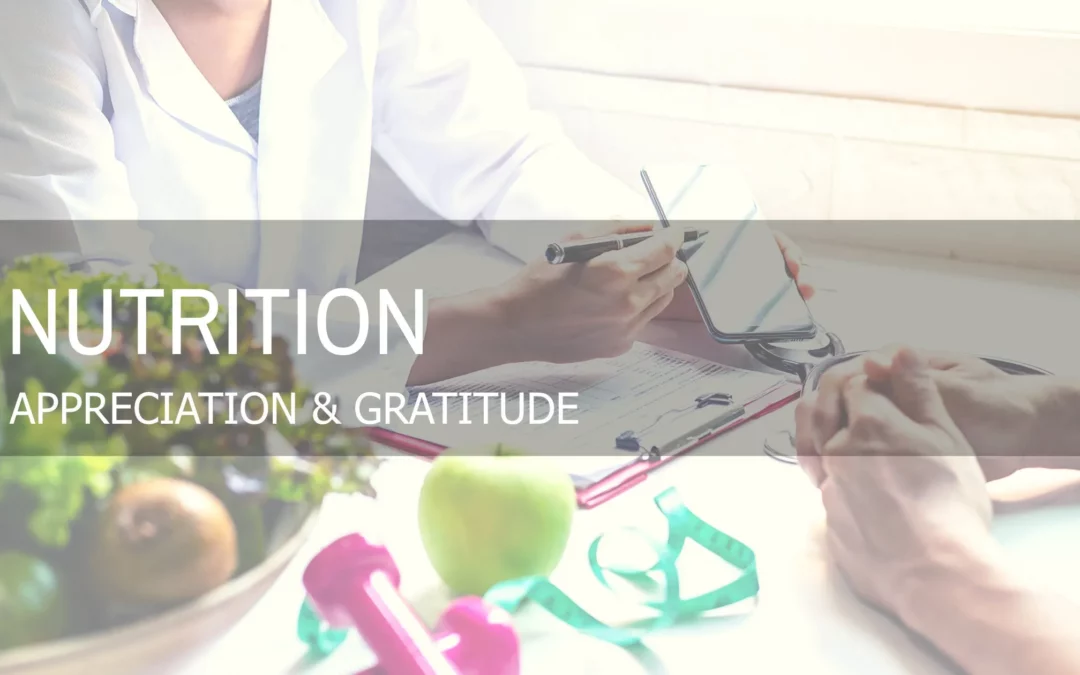Appreciation is the expression of acknowledgment of the gifts, talents, and fortunes of one’s self and others as well as the positive attributes of things and places. On a related but different note, gratitude is the state of being thankful. Although these things are often overlooked because of many other priorities, they can have a profound impact on our outlook and mindset. Focusing on the positives allows us to be more creative, resourceful, and overall, less stressed. On the flipside, focusing on the negatives narrows our thought process, increases anxiety and adds to overall stress, such as sleep disturbances, impaired mental acuity, impaired movement speed and accuracy, and negative effects on the metabolism.
Mindset and Outlook
Mindset is a major factor in how we view ourselves, others, and the world. A negative mindset will tend to be focused on the aspects of people and things that are issues and how to fix them. This can be useful in certain contexts, but if taken too far, there becomes a blind spot to the positives (we often take them for granted). Prolonged negativity limits our capacity to feel and show appreciation and gratitude, because the mind is expending energy on apprehensive thought and threat detection, which can affect our motivation and hopefulness for the future.
A positive mindset will tend to be focused on that aspects of people and things that bring enjoyment (elicits pleasure), inspiration, and hopefulness. It will naturally gravitate towards expressing appreciation and gratitude, because the mind won’t be as preoccupied with anxieties and possible threats, allowing for more openness and less stress in relation to people, things, and ideas.
How Does This Affect the Body?
A chronically negative outlook essentially leads to a chronically stressed-out life. Over the past few weeks, we have detailed how stress can significantly impact the metabolism, diet, and eating choices. Too much stress over a period of time hijacks how we process information and deal with problems, and makes us crave fats and sugars. These nutrient-devoid items can further dysregulate proper bodily functioning.
To decrease the stress that is in our control, it is important to focus on the positive things that are going on in our lives through active acknowledgment of our own gifts and the ones that we receive from other people. The brain only has a finite number of resources for information processing and regulating our bodies so fixating too much on the negatives just creates more work for our bodies to manage, making it less efficient.
How Do You Cultivate Appreciation and Gratitude?
- Focus on the beauty of the moment: children, grandchildren, fresh air, delicious food, a warm house, simple pleasures, nature, pets, etc.
- Focus on what you have accomplished thus far: great friendships, family, career, passions, overcoming hardships, saving up enough money for something special, education, etc.
- Focus on what you are looking forward to in the future: Trips, resuming education, seeing friends and family, getting a promotion, having a baby/grandchild, finishing up a project, going to a concert, getting a puppy, watching your favorite show, etc.
- How can you use your strengths to help others or the world around you? Are you a leader? Are you empathetic? Are you knowledgeable? Are you good with your hands? Are you a problem solver? Are you an artist? Are you an entertainer? Are your adaptable? Are you a calming influence? There are many things that people possess which can make the world a little brighter.
- If you feel appreciative or grateful, don’t be afraid to share it with others.
What Are Some Tools to Help with Appreciation and Gratitude?
- Allow yourself to be vulnerable – being more open to others gives us the opportunity to expand ourselves rather than being too self-focused. Of course, it’s okay to be selective when it comes to for safety.
- Be mindful of the things and people you have in your life – who is in your support system? What things do you have that make your life easier? If there is an issue, maybe it is time to make a change.
- Think about what makes you happy – sometimes we get so bogged down in our issues that we forget about what actually makes us happy.



